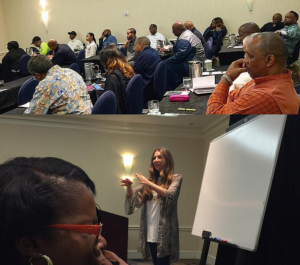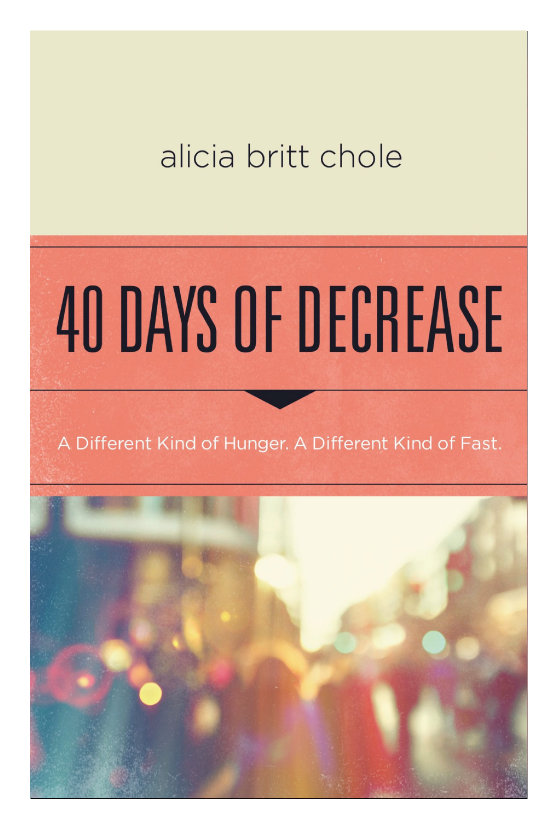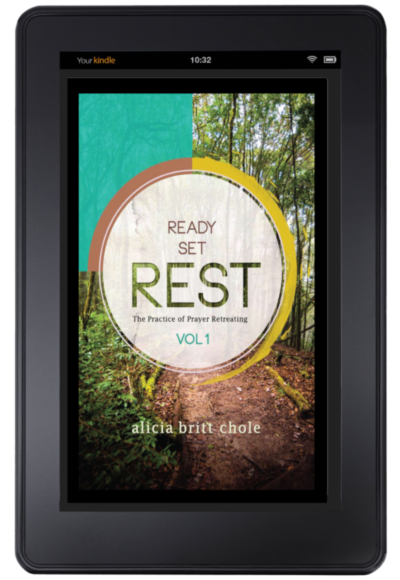Ah, learning.
As an introvert—or perhaps simply as a human—I prefer to learn in private. Quite often though, my learning occurs in public. And public offers a different type of spiritual formational opportunity that cannot be underestimated.
I am typing on a flight back home from Miami where I had the absolute joy of presenting a two-day soul-care retreat to the executive council of the Kingdom Association of Covenant Pastors. The presiding vice-prelate, Dr. Claude R. Alexander, and his wife are dear friends. I have spoken several times at his truly exceptional church, our families have enjoyed time together, and most recently, Bishop Alexander graciously opened the door for this opportunity with the KACP.
Scholars and leaders with golden hearts and brilliant minds filled the room for our two-day retreat. Our time as a community 
The result? The ending of the retreat was a bit abrupt. It would have benefited more from my conclusion than from the additional spiritual formation questions. After the conference, I processed my thoughts with a few others and my perception was not distorted. Yes, the retreat was rich. Yes, the ending was sudden. And, yes, God and His people are ever-gracious.

“Could have done better.”
Some personalities seem to shrug off the possibility without a second thought. Others find it too painful to even consider and therefore live in denial declaring all their efforts to be their “best” or (in self-protection) their “worst.” And then there are those of us in middle: too emotionally realistic to live in denial and/or too socially aware to not distinguish between done and well-done.
The motivations may be many. I will not make assumptions about your roots. For me the “why” is some combination of being an artist, loving excellence, having an over-developed concern for how I use other’s time, and being a teacher.
So, how do I navigate learning in public?
First, I ask myself if Jesus died for this misstep.
The question provides perspective. Was Jesus taking upon Himself on the cross the penalty for me being too weary to discern the most meaningful way to conclude the retreat? Nope. Which immediately takes this out of the realm of sin and repentance into the realm of learning and humility. Both emotionally and spiritually, the distinction is critical.
Second, I ask Jesus for permission to process the alternatives in order to learn from the experience.
Yes, I am serious. I do not assume that it is wise for me to recount my steps. If Jesus is not leading me there, for the health of my soul, I dare not go there alone. In this instance, I felt the go ahead. Jesus and I opened up my notes and I saw that though the spiritual formation questions were helpful, they could have been deleted in favor of my prepared conclusion that would have brought us full circle more effectively. I also realized that I had not anticipated my weariness in advance and that a sober evaluation of the schedule and my notes could have quickly foreshadowed how tired I would have been heading into those final hours. With Jesus, I have made plans to help me take into consideration potential weariness in similar speaking situations.
Third, I work to keep my raw feelings about “could have done better” in Jesus’ presence.
My feelings are real whether or not they are logical. In Jesus’ presence, they can rest in the strong shadow of Truth. In Jesus’ presence, they can remain free of infection. In Jesus’ presence, they can slowly be absorbed by His love. In Jesus’ presence, my heart remains soft and teachable and attentive.
(Photo courtesy of Bishop Walter Scott Thomas, Sr., Presiding Prelate of KACP.)
~~~~~~~~~~~~~~~~~~~~~~~~~~~~~~~~~~~~
Learning Together: How do you navigate knowing that you have could have “done better” on the job, at home, or in the church? This week I will be giving away to someone who comments the newest book from my friend Kerri Weems entitled Rhythms of Grace.







Thank you for the courage to share this. I hate learning in public, but I see the Lord using my mistakes that others see to grow me in a way that could not be done in private. This was what my heart needed today.
I love how the Lord had you process this. It was so healthy.
Dearest Alicia, as another introvert, this speaks volumes to me. I often find myself ‘reliving’ a moment in my head and kicking myself for what I ‘could have done/said (or should not have done/said)’. Sometimes, I can let it go, but other times, when I felt God leading me toward something, I struggle afterward that I didn’t fulfill it properly.
Similarly, my husband is an actor for live theater. Sometimes, he will come out after a show, discouraged that they skipped half a scene because someone said the wrong line. He gets quite bothered by this at times. Then I remind him, “but the audience didn’t know you were suppose to say those lines, nor was it noticeable. Maybe a rough transition, but it worked with what you had at the moment.” He’s an extrovert, so this tells me that we all tend to criticize ourself more than anyone else would.
Your steps for processing are good, so as to allow the Holy Spirit to assist us with what is healthy reflection as opposed to destructive self criticism.
I’m sure that your presentation still offered rich thoughts for many to take and process. God still uses the seeds that were scattered.
A great deal of wisdom here! I have always been the type that beats myself up over any little mistake. As I mature, both chronologically and spiritually, I am learning that Jesus, indeed, expects my mistakes and He covers them. So, when I goof, I take it to Him and allow Him to teach me from it. I have never really thought through the process the way you did here, so that is very helpful to me. Thank you.
I think I navigate in ways similar to you. I try to see what contributed to the “less than best” situation, as you did in looking at your weariness. I suppose though, that I often find more than one reason for certain missteps. So I ask if the pieces that contributed were sinful or not. So in my case, it may be that I was both tired (not sinful) and worried about how people would perceive me. The second item does fall into the sinful category–being motivated by fear of people over fear of the Lord. Or seeking approval of people above approval of God. So dealing with that would entail looking at that fear or desire and taking that before the Lord for forgiveness, and also asking Jesus if I need to process where fear comes from or how it got in, etc. To see if He wants to deal with it in a deeper way. Or, if there are several competing factors and I don’t know which is most important, I may simply ask Jesus what He wants to talk to me about at this moment. Sometimes I see more than one area that needs to be transformed in my life, but I can’t see where to begin. Jesus knows the best order to address my sins and weaknesses, so I let Him guide me.
God is not looking for perfection on our behalf…just wants our obedient and willing heart! He covers everything with His incredibly abundant grace and mercy. It was His teaching anyway, having given you the material to teach and present. As long as we are willing servants, He covers all the bases. He is perfect! And He loves and will use your message to impact people’s lives in a way that only He can do! Amen! God bless you for your willingness to put yourself out there. Give yourself the grace you give others.
If my intentions were God-honoring and I have been faithful to do my part with the task-at-hand, I mostly let it go and remember that God is faithful to water the well-intentioned seed. It’s not that I don’t value the evaluation, but I don’t linger there too long. Heaven holds the value of those moments; God is faithful to sort out the details.
I’ve dealt with this on a much smaller scale in my teaching this year. I’m faithful to teach the Bible to my students, but it doesn’t always feel like it’s “landing” where it should. Still and yet, I teach and pray for the Holy Spirit’s hand therein. The harvest isn’t visible, but I’ve done my part.
Keep planting, Alicia. God will do the rest.
In that I spent so many years as a spiritual orphan, my flesh is still inclined towards defensiveness and blame shifting. Now when I have made an error, I choose another route. It is still purposeful, I must actively get into His presence and call on His love as His daughter. Then with Him I can hear His correction, which for me often involves acknowledging this mistake (often to another) and allowing the Lord to speak through that process and/or that person. It’s producing a softening in my personhood that could only be developed by the practice of adoption (daily)
I used to really berate and punish myself for making mistakes. I’d endlessly go over what I could have, should have done. I still have a hard time letting go. My first step was realizing that it simply isn’t about me.It is about Him. So, i’ve found freedom to allow myself to make mistakes, and trust God to cover me. I’m still not where I want to be though. But the journey has begun.